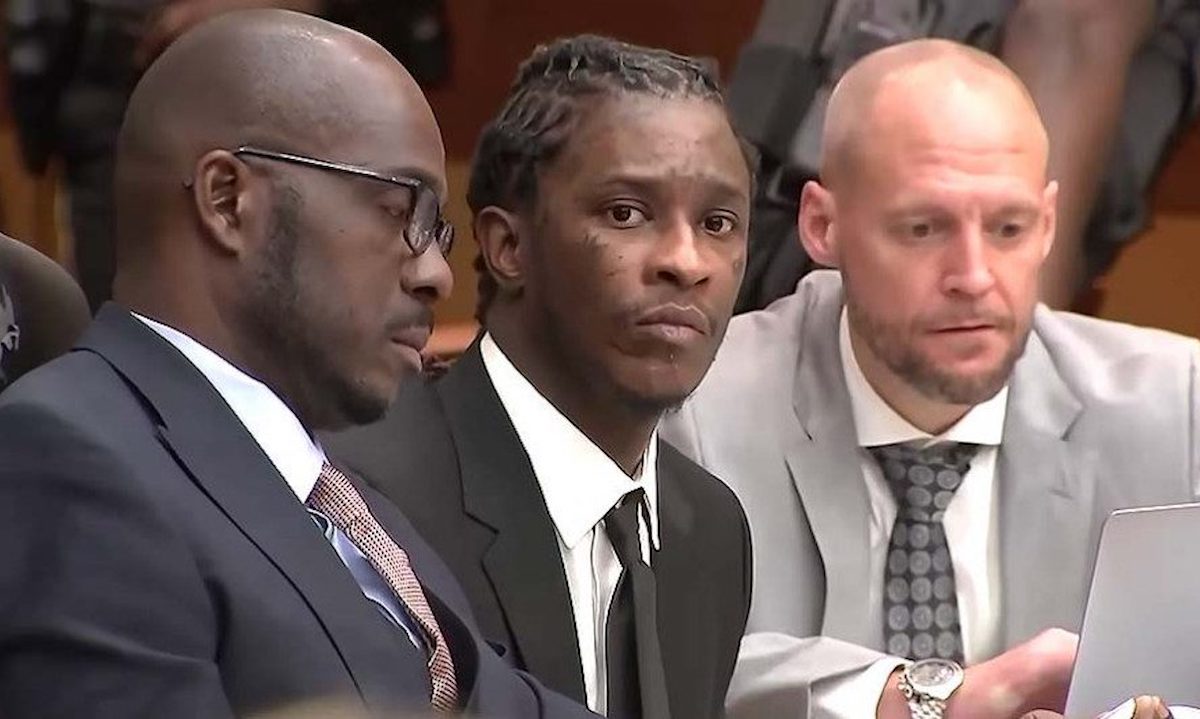Attorneys in the YSL racketeering case are fighting for their clients to have a fair trial, and this was the subject of a confrontation between Judge Ural Glanville and one of the defense lawyers.
The trial for Young Thug and other YSL members racketeering, murder, and other crimes will begin on November 27, and the court is currently hearing motions from both the defense and the prosecution.
The defendants in the case have been whittled down from 28 to seven (7) defendants: Jeffery Williams, also known as Young Thug, Marquavius Huey, Deamonte “Yak Gotti” Kendrick, Quamarvious Nichols, Rodalius Ryan, and Shannon Stillwell.
On Tuesday, all parties were in court, where Judge Glanville ruled in favor of motions for the defense, which resulted in the prosecution narrowing its witness list from 737 to about 400. The prosecution had padded up its list within the last few weeks, but Judge Glanville was stern earlier this month as he warned that the list was constantly changing, which he won’t allow.
One of the prosecution’s motions for the judge to hear is that of the state asking the court to disqualify Young Thug’s attorney, Brian Steel.
This is the second time that the prosecution has tried to get Steel disqualified. Last year, Judge Glanville did not grant a motion to disqualify the attorney who has been Thug’s long-term lawyer. The prosecution argued that by representing other defendants, including Thug, there was a conflict of interest that could affect the trial. However, Judge Glanville said while the potential for conflict does arise, he was not convinced that that was imminent at the time.
In the meantime, Judge Glanville got upset at attorney Doug Weinstein, who brought up a concern that Young Thug’s constitutional right to a fair trial is affected as they don’t have a line of view to face the witness.
Weinstein is representing rapper Yak Gotti, whose real name is Deamonte Kendrick.
“I just want to bring up that the defendants under Coy [Coy v. Iowa: A Constitutional Right of Intimidation] have a right to line of sight vision with the testifying witnesses which we do not have at the present time,” the lawyer said.
“You have zoom capability,” the judge, however, added.
Weinstein, however, said that’s not sufficient under the Coy case. Judge Glanville asked, “What do you want me to do about that? How am I going to solve that?”
Weinstein: “I don’t know your honor. I honestly don’t.”
However, Judge Glanville insisted that it was the lawyer’s job to “bring a solution” since he had an issue.
“I get it. Give me a solution or a proposed solution. First of all, I wouldn’t be trying this many people at once, your honor,” Weinstein said before adding that it was on the prosecution to ensure that the constitutional rights of the defendants are upheld.
"I'd be very careful addressing me this way, Mr. Weinsein! – Judge Glanville upset at defense attorney Weinstein. Weinstein legitimate concern is the configuration of the courtroom and the defendants' right to have line of sight of witnesses. #YSL #YoungThug pic.twitter.com/pVWb1gFZgT
— Cathy Russon (@cathyrusson) November 21, 2023
However, this seemingly angered the judge as he lashed out, “That’s not the point… I’d be very careful addressing me this way, Mr. Weinstein.”
Law & Crime has reported that the courtroom is being reconfigured to ensure that the law is followed.
Coy v Iowa is a 1989 case that interpreted the confrontation clause as requiring the defendant and accusatory witnesses to meet ‘literally face-to-face’ in the courtroom. The case has often been criticized for being vague and illogical in some instances, such as when or if a child has to take the stand.
